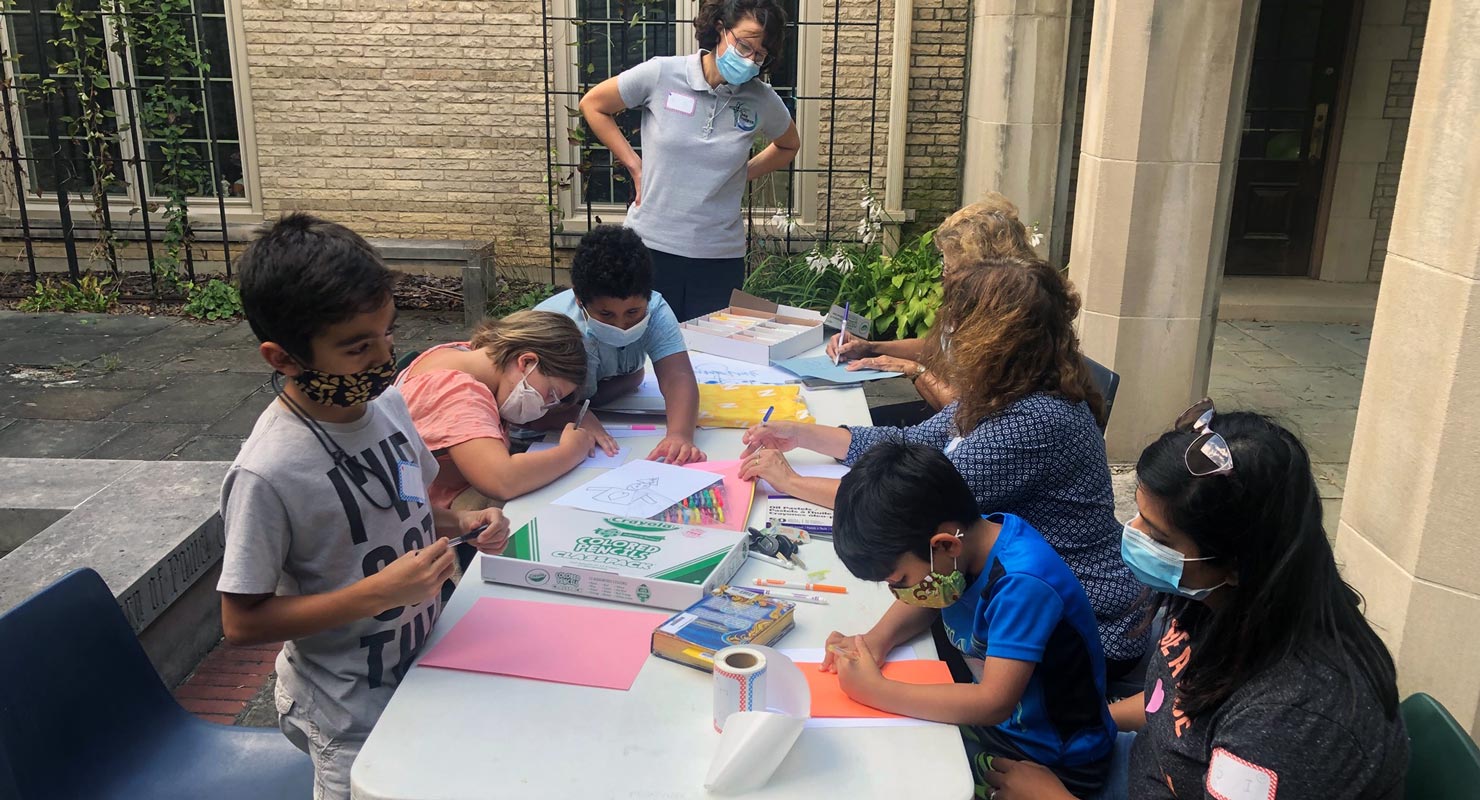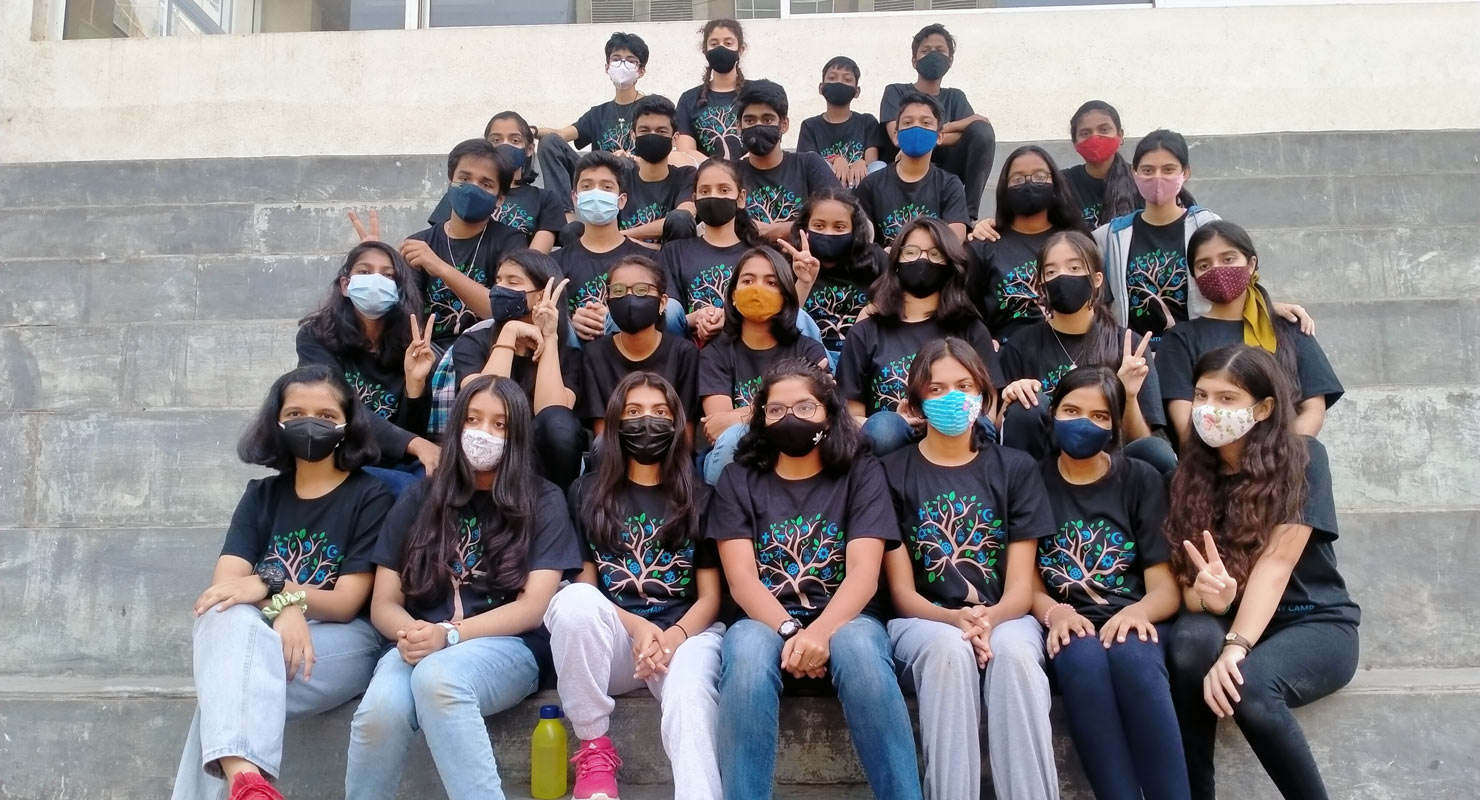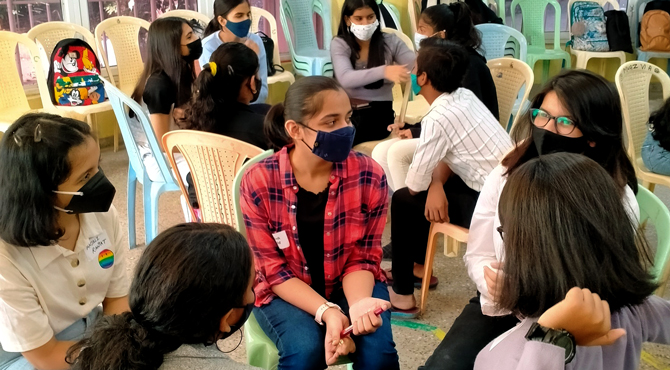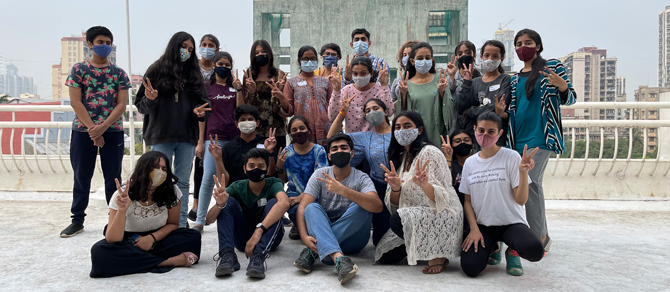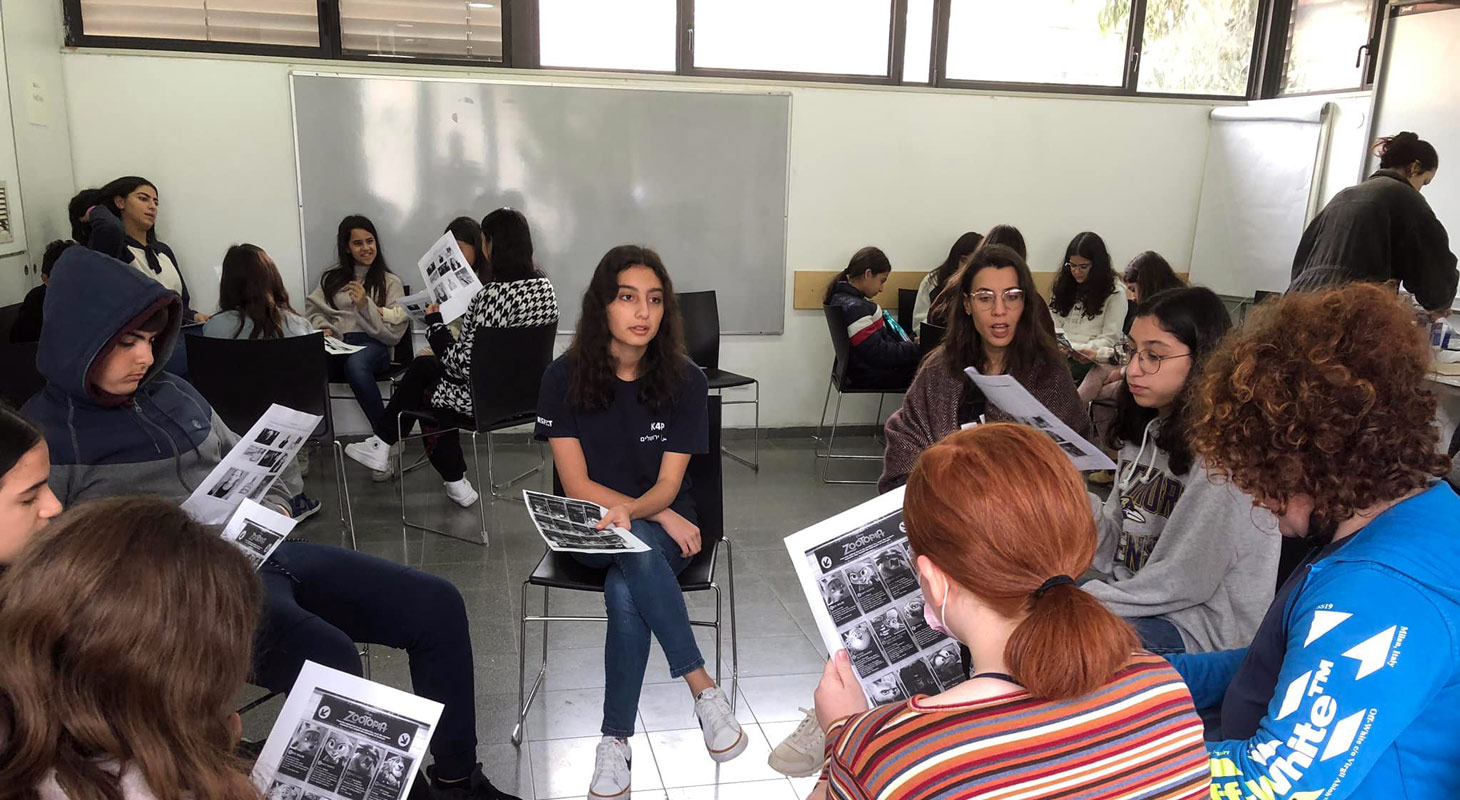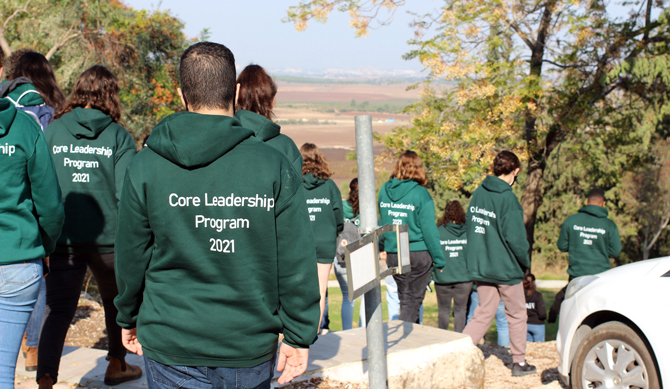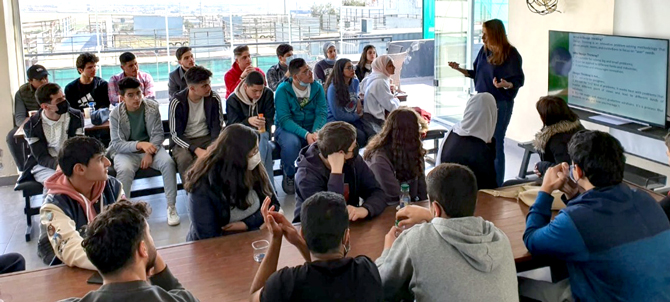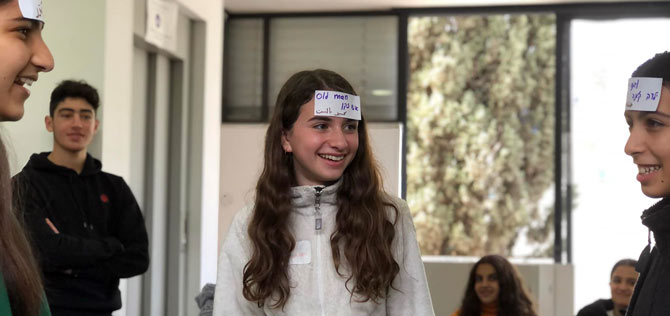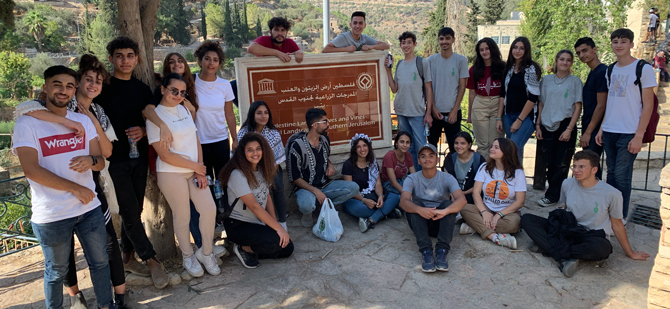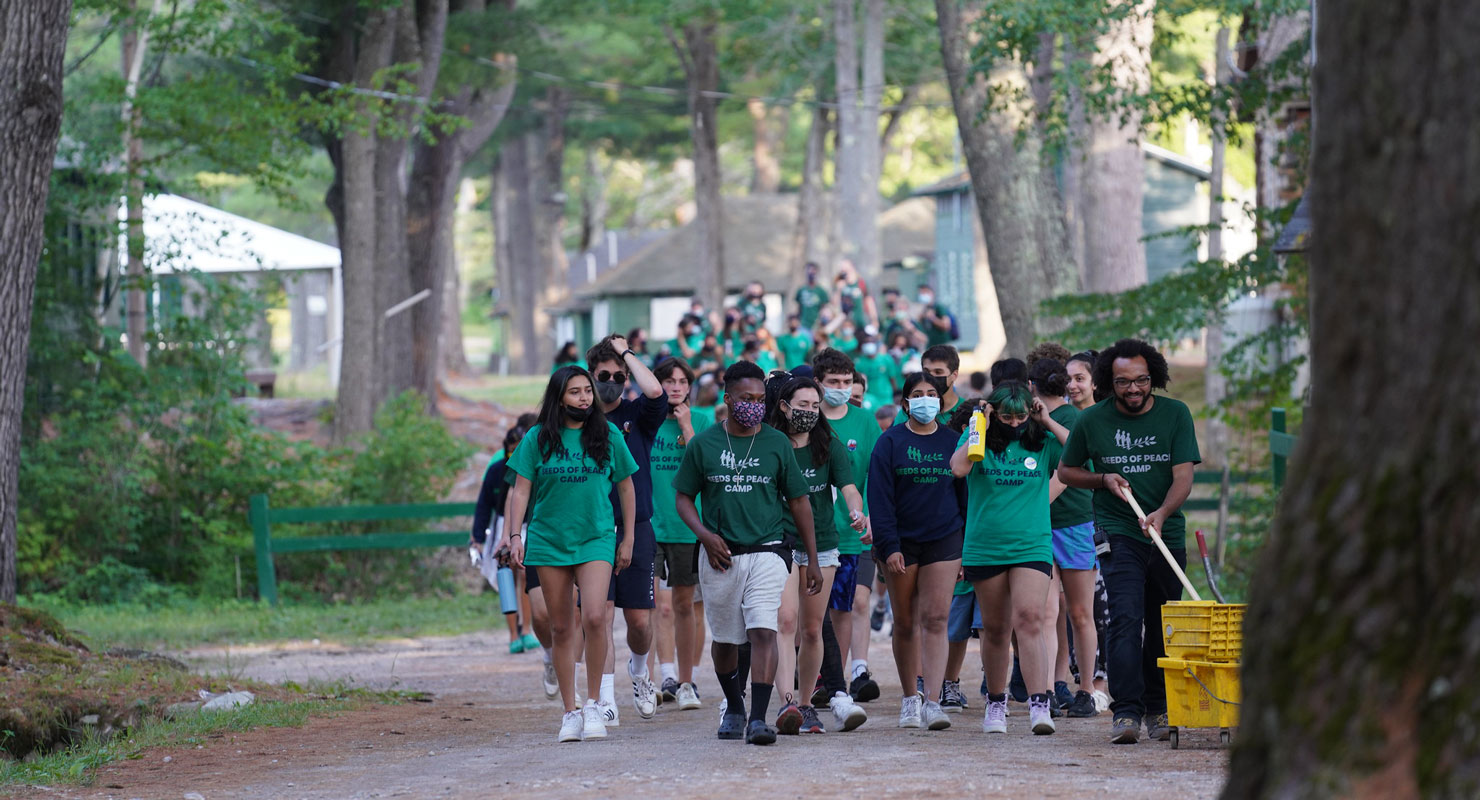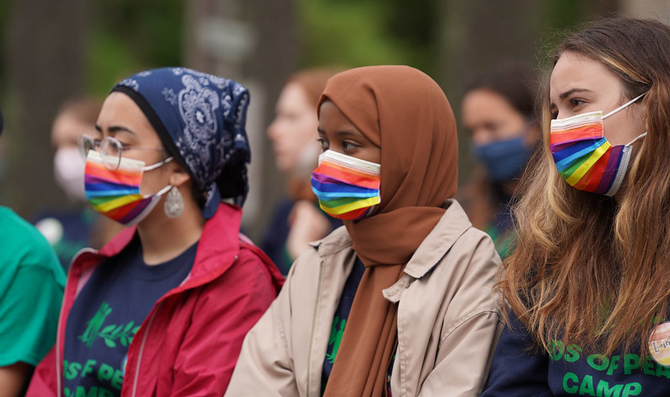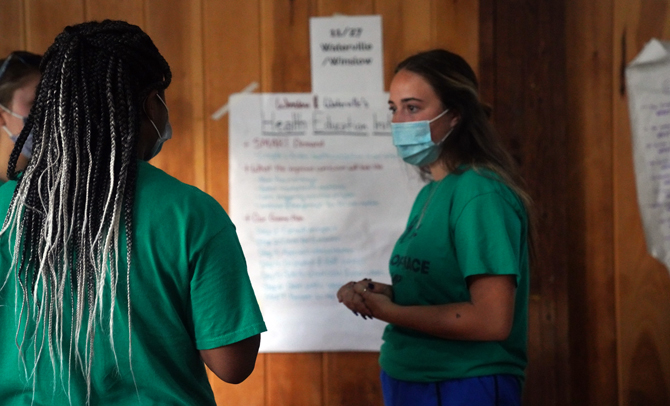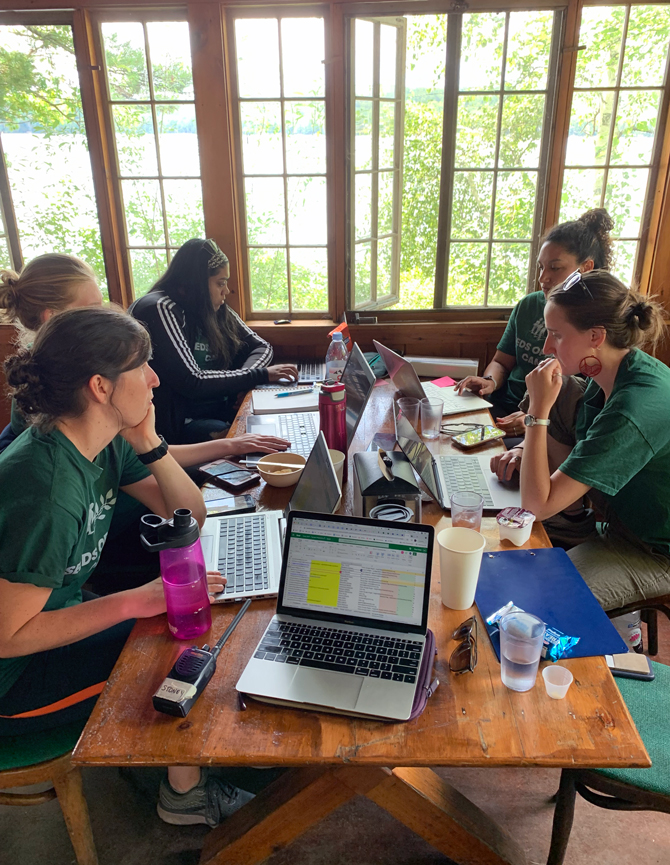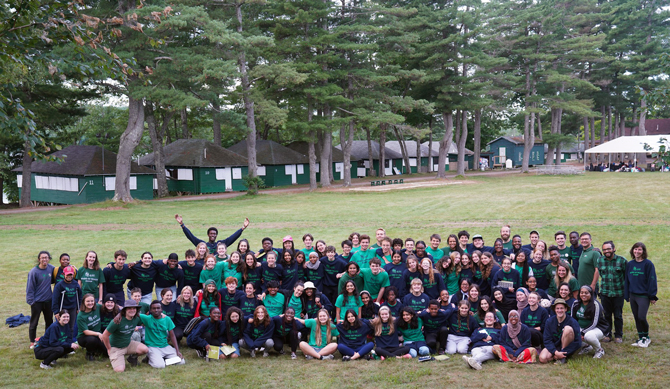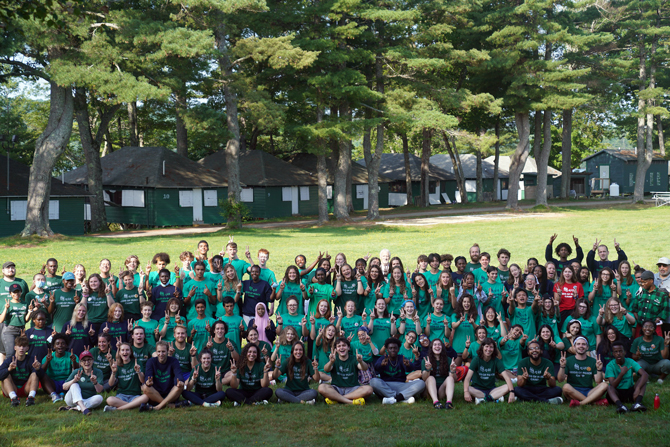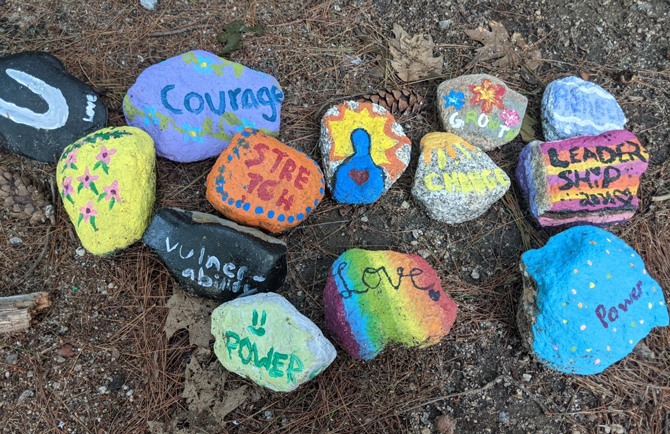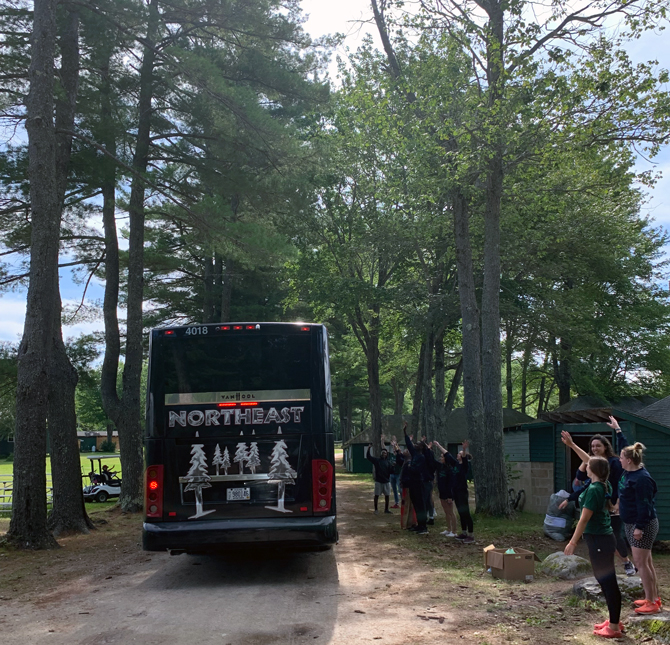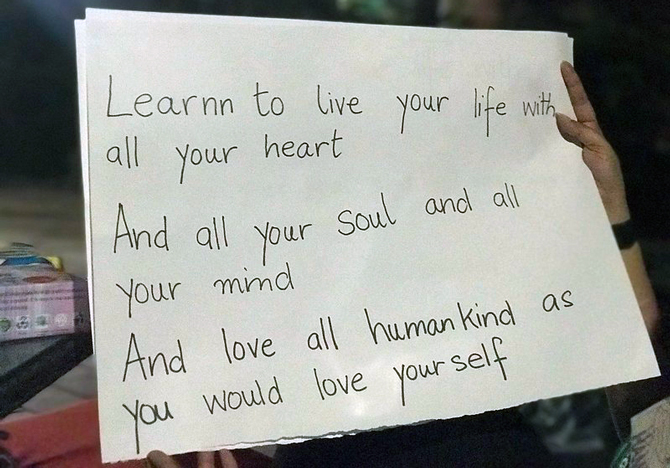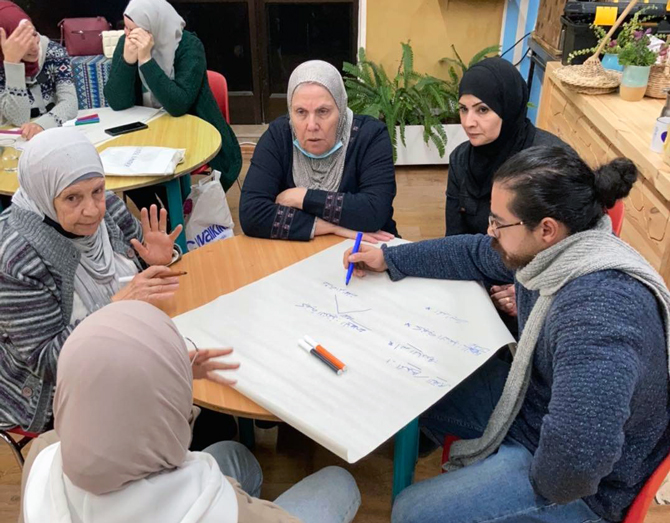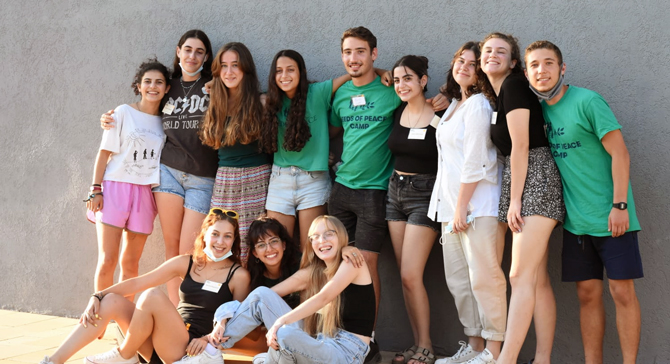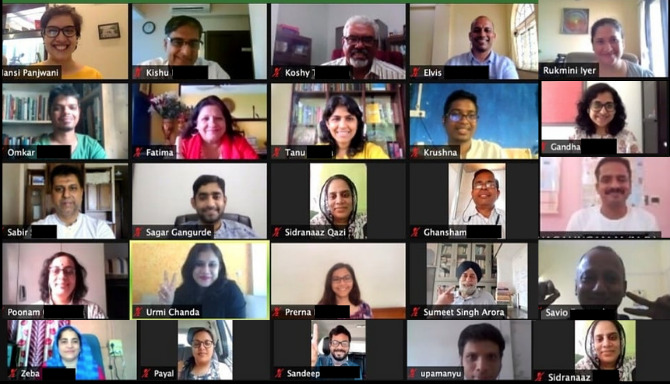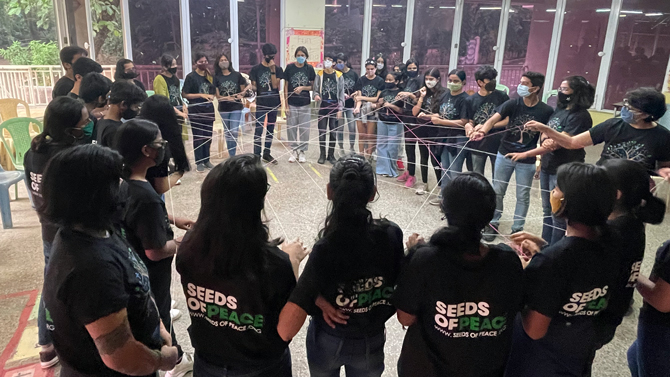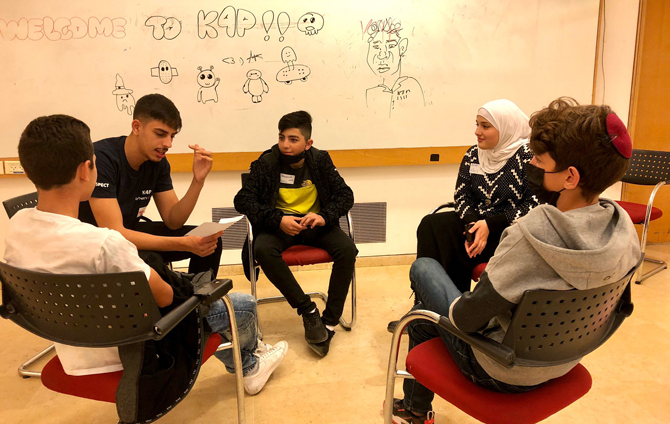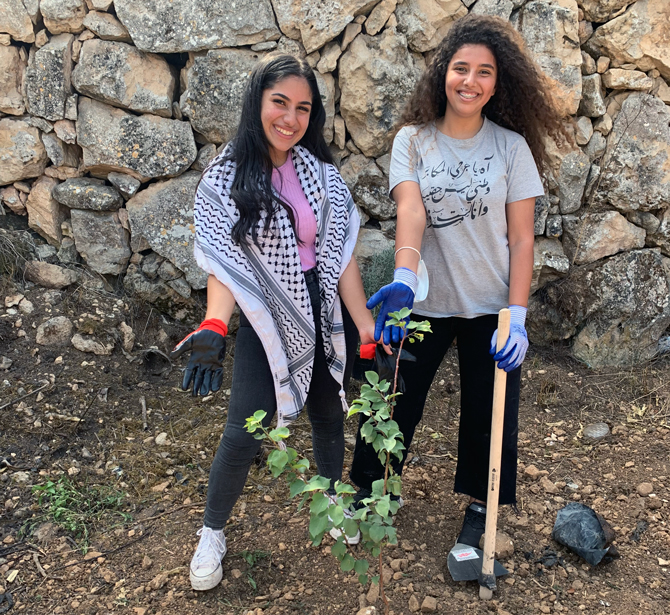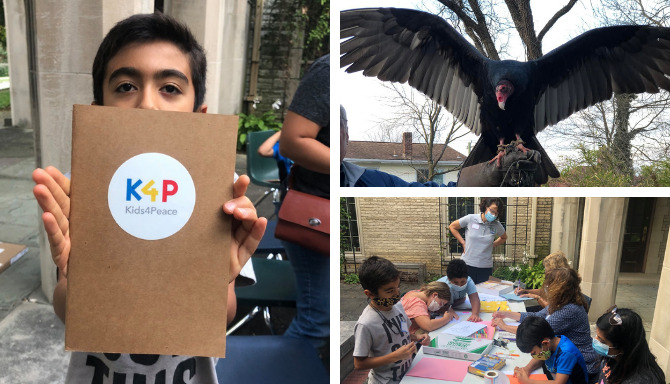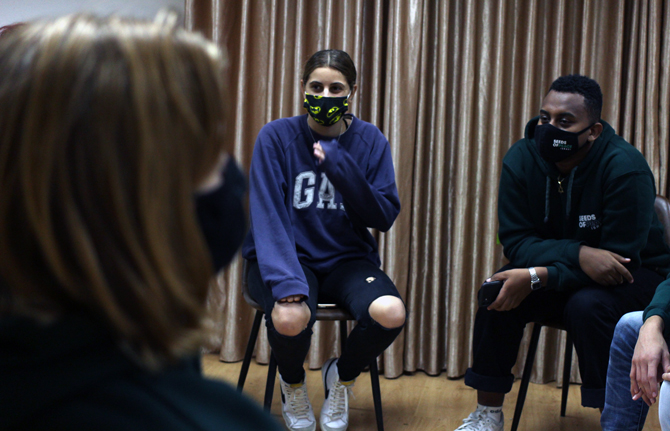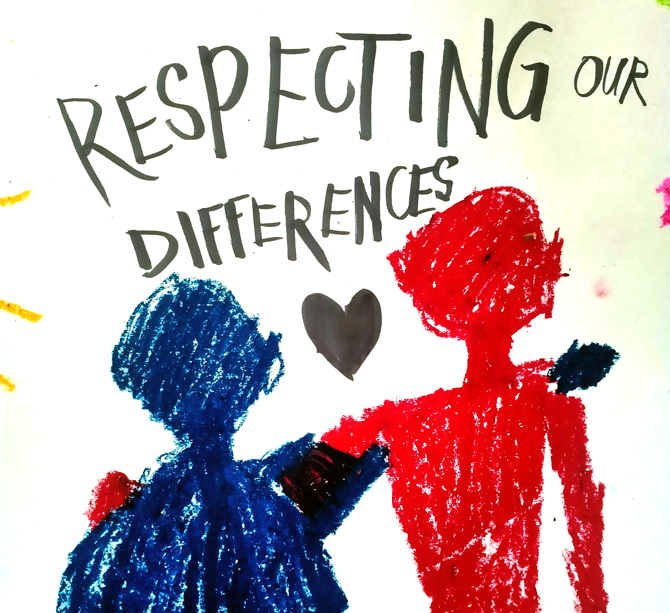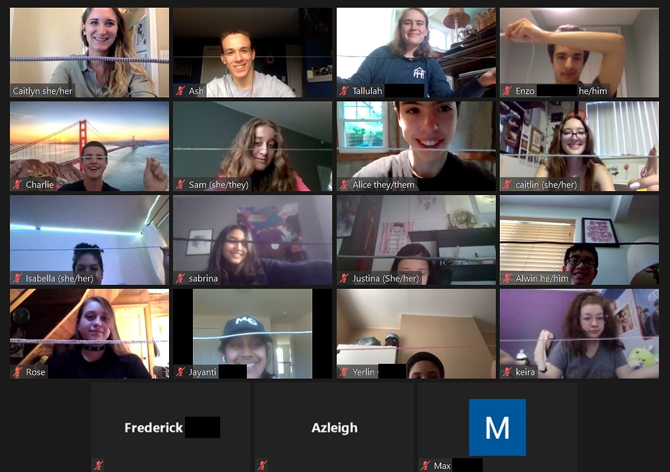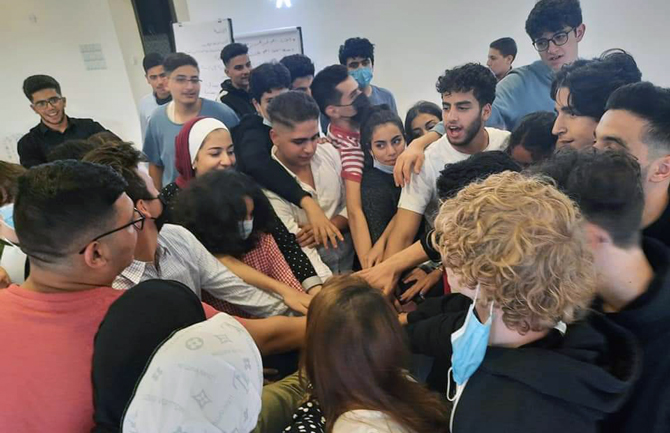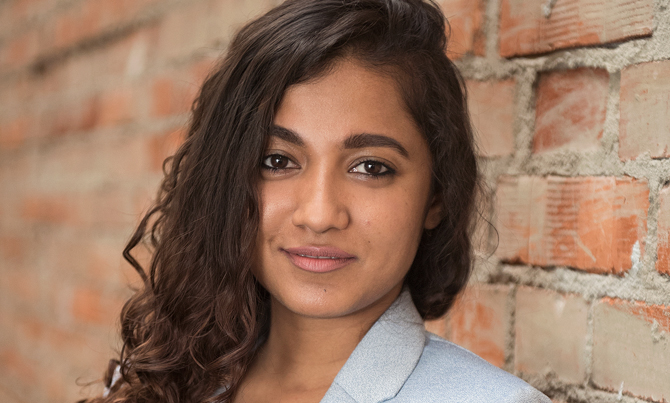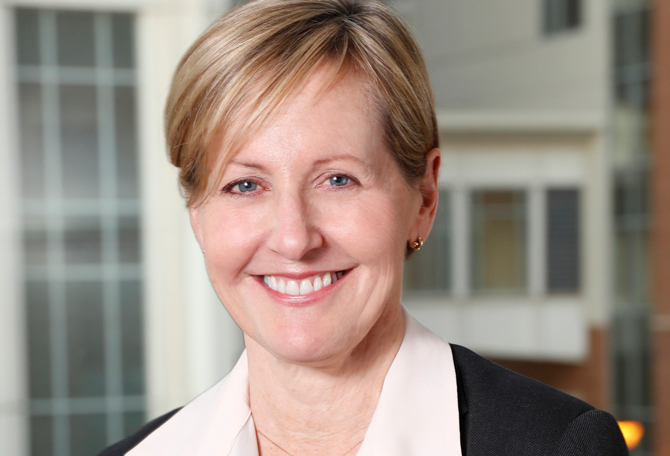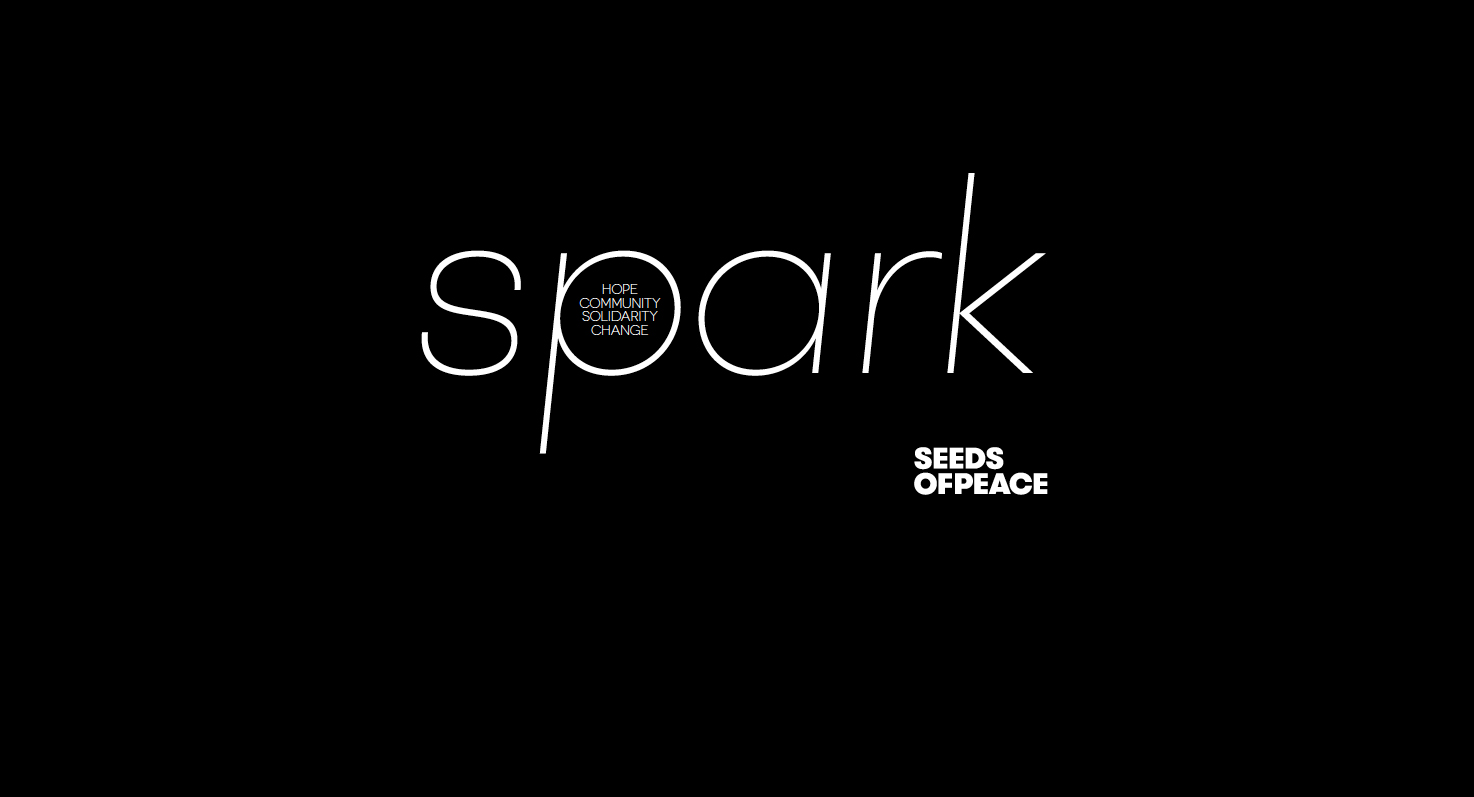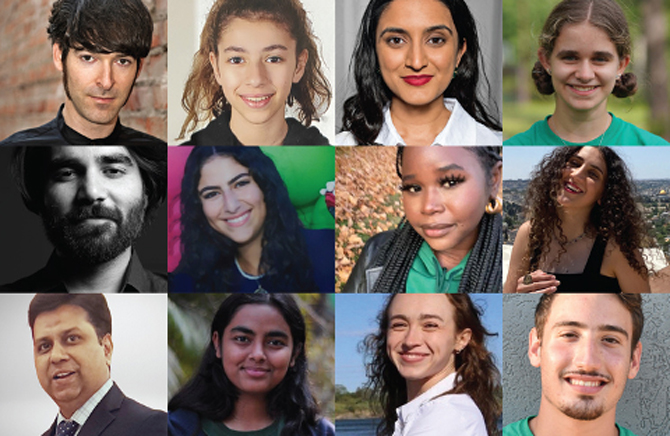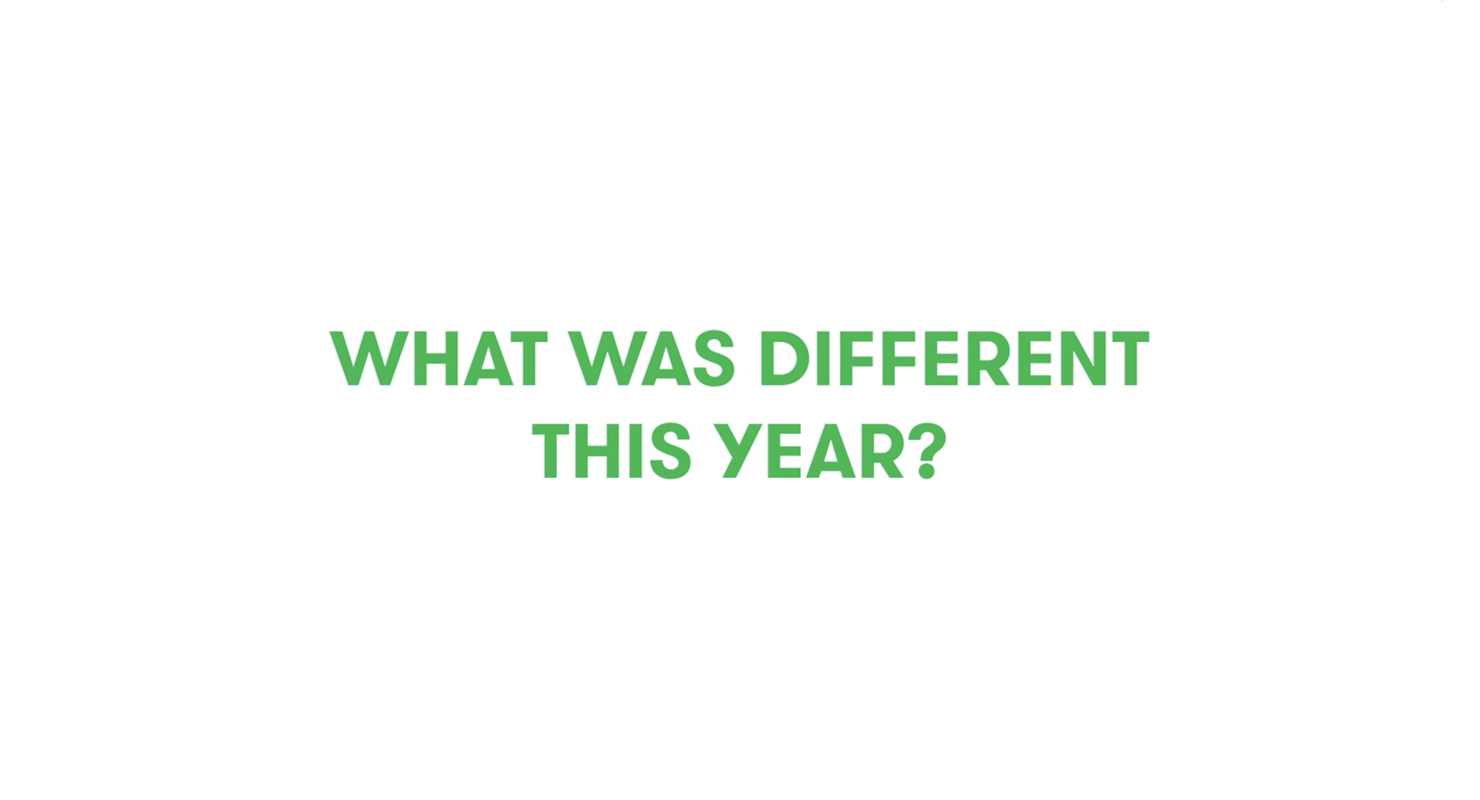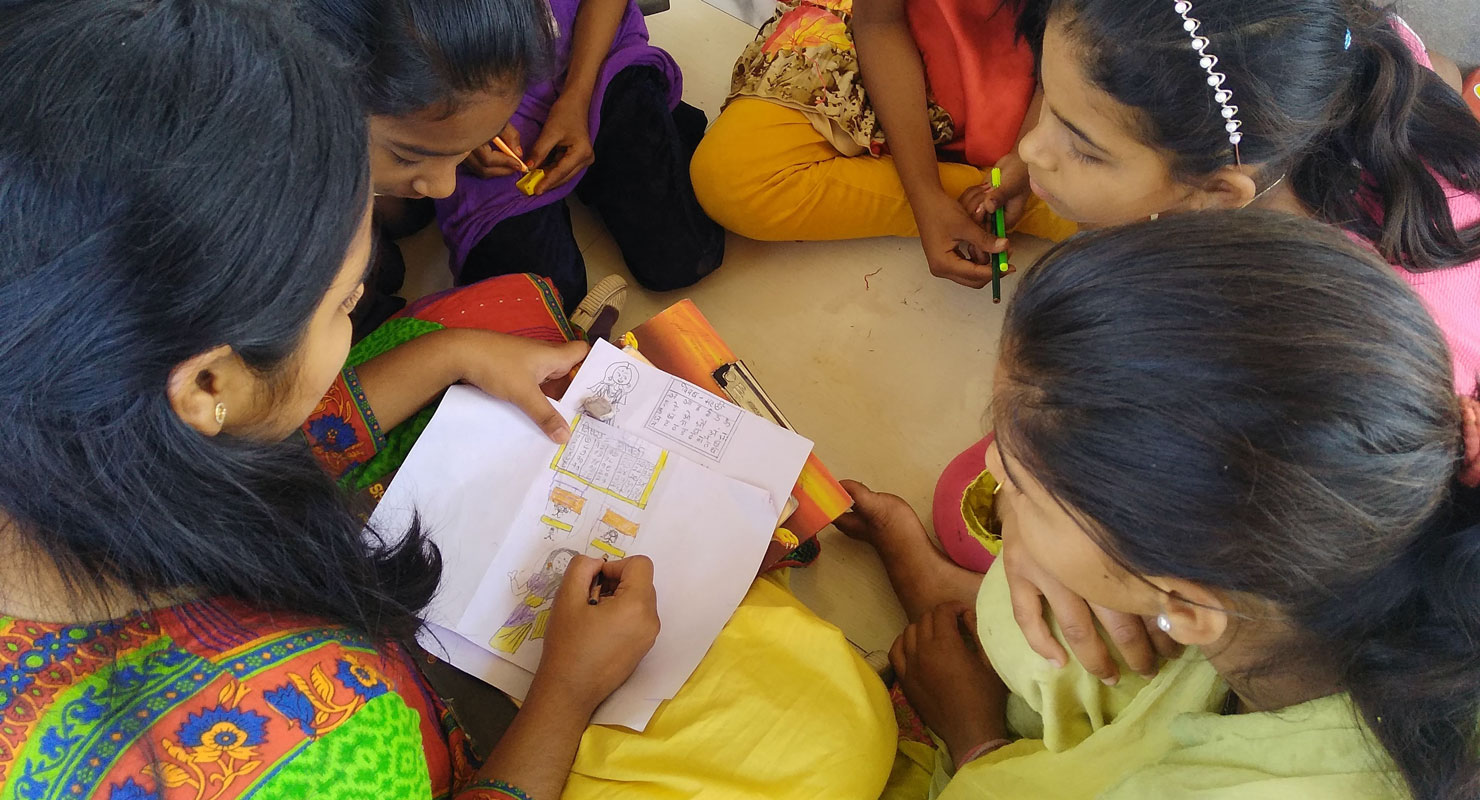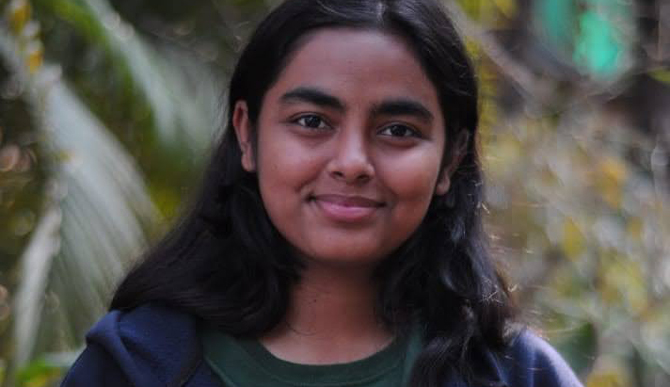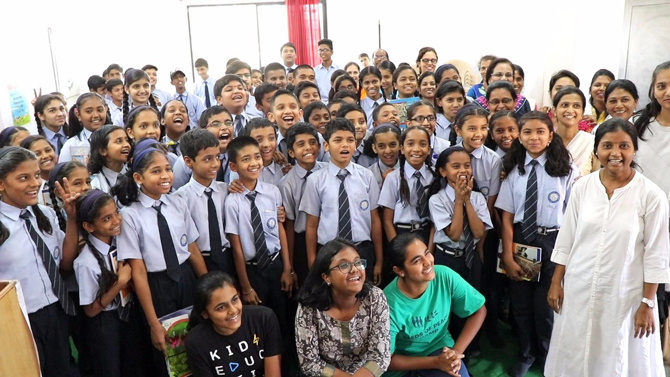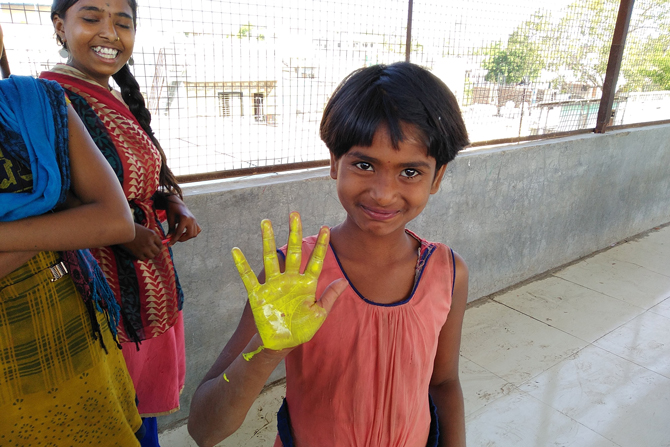In classrooms, public parks, religious spaces, activity centers, and virtual platforms, fall and winter programs helped 2021 Seeds further develop their collective and individual leadership skills, while also expanding opportunities to new groups of youth.
Among those new opportunities were pilot programs for youth in the first through fourth grades offered by Kids4Peace-Cincinnati. While exploring universal values such as listening, kindness, patience, and taking care of the world around them, the youngsters had opportunities to practice living out these virtues through interactive activities, like using art to explore caring for others, composting, and even meeting a few raptors from a local bird conservation group and learning how to protect their local habitats.
These new programs aimed to provide a foundation for youth to dive deeper when they enter Kids4Peace Middle School programs, like those held in the College Hill neighborhood this fall. Thirteen students in grades six through eight completed a 10-week program that focused on building trust and establishing relationships that create atmospheres of acceptance and peace, rather than seclusion and fear.
Also this fall, 10 new Seeds took their dialogue skills to the next level by earning a certification in Dialogue Facilitation. Over the course of four days, this skills-rigorous training program gave 2021 U.S. Seeds the skills to facilitate peers in dialogue and engage in deeper, more courageous, and productive conversations with people in their lives.
“Even though it was initially very daunting, it was really cool to see us actually do something that we didn’t think we could do on Day 1,” said Adina, a 2021 New York City Seed who completed the facilitation course. “I left wondering how this would manifest in my life and imagining in which situations I could use these new skills.”
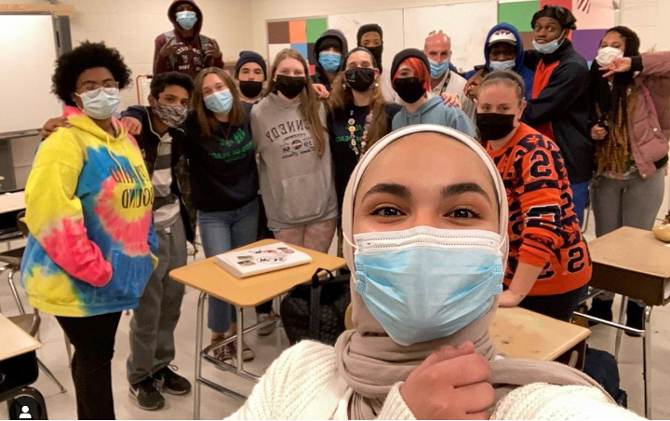
Bushra/Corcoran Seeds of Peace
The program was offered as part of a series of Fall Virtual Programs, which included monthly roundtables, dialogues, and short programs for youth from across the U.S. But perhaps some of the most exciting gatherings are those organized by Seeds themselves.
Seeds of Peace clubs, which are run by Seeds in partnership with their schools, held more than two-dozen self-organized meetings this fall and winter. Together and with their peers, they engaged in dialogues and planned community-action projects, including efforts by Seeds at Corcoran High School in Syracuse, New York, to make extra-curriculars and enrichment opportunities more widely available to all students.
Applications are now open for U.S. youth to apply to the 2022 Seeds of Peace Camp in Maine, as well as the Global Institute in Washington, D.C. Learn more at seedsofpeace.org/join.


